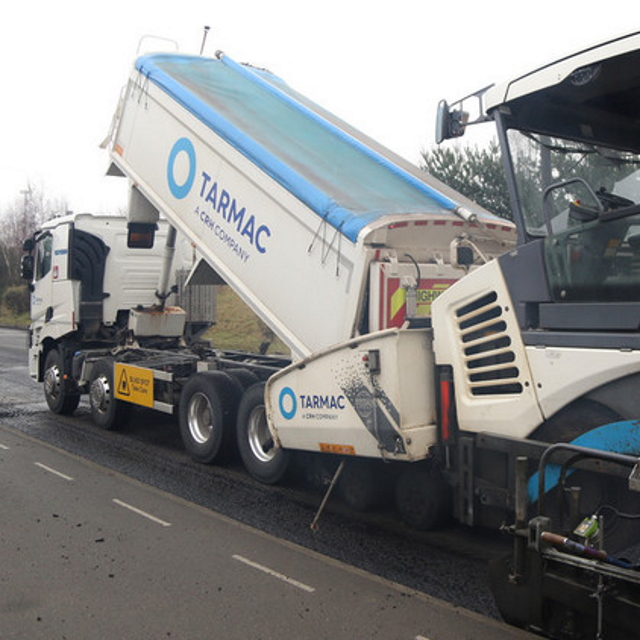A1 (M) motorway operation and maintenance contract
A1 (M) Darrington to Dishforth

Client
Highways agency via
Road Management Services (Darrington) Limited
Contractor
Tarmac Contracting
Location type
Motorway
Completion
2019, further extended to 2023
The challenge
The A1(M) Darrington to Dishforth DBFO contract is a long-term operation and maintenance contract delivered by Tarmac on behalf of Road Management Services (RMS). The North Yorkshire-based project covers a 33-mile stretch of A1 (M) motorway between Darrington to Dishforth, which is part of a critical strategic link in the national network between Scotland, the North East and the South of England.
Tarmac’s remit on the contract includes active traffic management, inspection and maintenance of bridges, pavements, earthworks, motorway communications, and a range of other highway assets.
The contract includes the delivery of a comprehensive winter maintenance programme, and provision of 24-hour emergency response teams. Furthermore the contract also covers cyclical highway maintenance and a range of environmental works, including grass cutting of highway verges, landscaping, and horticultural improvements.
One of the key objectives of the Darrington to Dishforth contract is to prolong the life of individual assets by maintaining structural integrity during the contract term.
Having started in 2011 with the initial contract ending in 2019, the project is performing exceptionally well and is likely to be extended for a further four years to run until 2023.
Our solution
Tarmac initiated a collaborative ethos with all parties involved in the contract to enhance communication and problem solving. Tarmac deployed several innovative and sustainable solutions throughout the contract.
The collaborative ethos brings together a collective responsibility for safety and ensures best practices are shared. The Tarmac team produced road safety reports and accident statistics to develop schemes to reduce the number of accidents on the network.
Tarmac tackled a particular road safety issue to reduce the number of vehicles moving lanes. This was resolved by laying a higher PSV material at Junction 49 to improve skid resistance on high-speed free-flowing links.
Throughout the contract, Tarmac implemented solutions that limit asset deterioration and drive preventative rather than reactive measures. This included an innovative approach that laid warm deep 300mm materials at night. Not only is this more sustainable than traditional methods, it allows for roads open to traffic the following morning.
Other sustainable solutions included moving more material by train rather than by road trucks. Another initiative included an ecology improvement scheme on a large piece of land at Brotherton Ings, in order to attract a wider variety of flora and fauna.
Results and benefits
Throughout delivery of the contract Tarmac met 98 per cent of the KPIs set by RMS. The positive feedback received from RMS bears testament to Tarmac’s outstanding performance. The low number of complaints received in comparison to other areas shows that road users are also satisfied.
The collaborative ethos demonstrates Tarmac’s commitment to providing the client with best possible value, exceptional customer service, high quality contract performance and a focus on health and safety matters. In August 2017, 300,000 hours of work completed was free of lost-time injuries, all thanks to a strong joint leadership team, and a number of Tarmac safety initiatives. The last recordable accident or lost time injury on the project was more than six years ago.
Furthermore, proactive identification of safety observations has increased by nearly one thousand per cent, from 27 in 2014 to 250 in 2017, due to the relaunch of the innovative Safety Observations programme and the Tarmac mobile app to record any report any health and safety issues.
The success of The A1(M) Darrington to Dishforth contract clearly demonstrates Tarmac’s commitment to proving the client with the best possible value and customer service.
Additional info
Minimal disruption
Mininisng user disruption is a key priority on this contract. Wherever possible, in order to limit the scale of works done, minor defects are identified before they developed into major issues using a thorough inspection regime.
Sustainable
Sustainability throughout this contract is also a top priority. All waste that is generated is either reprocessed or recycled. The internal supply chain means Tarmac can guarantee the sustainability of the materials being used. The progress of the project is measured by successfully meeting the KPIs from Highways England and Road Management Services. There are 50 individual measurable items on the contract of which 98% of these are currently being met.
